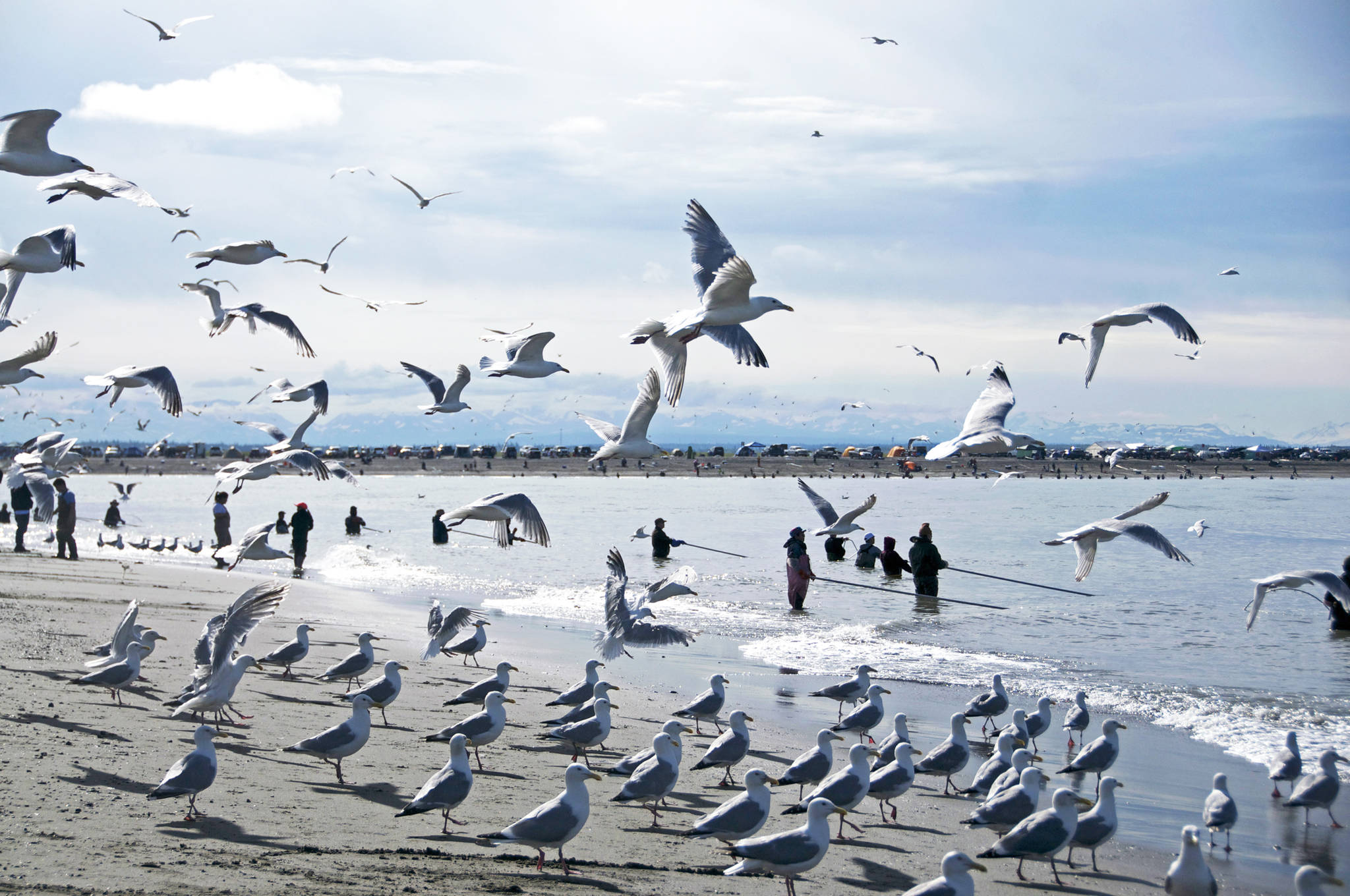Both of the Kenai beaches have too much fecal coliform and enterococci bacteria in the water to meet state standards.
Every year, the Alaska Department of Environmental Conservation tests the water around the north and south Kenai beaches. Water samples taken on July 3 and July 13 showed that the level of enterococci and fecal coliform bacteria did not met state water quality standards.
Though DEC hasn’t recorded any cases of sickness caused by Kenai beach bacteria, it could pose a health risk for people recreating or harvesting fish from the marine waters, according to a July 17 press release.
“Contact with water impacted by enterococci or fecal coliform bacteria may cause stomach aches, diarrhea, or ear, eye, and skin infections,” the release states. “DEC recommends beach users take normal precautions to avoid exposure, such as avoiding swimming in the water, washing after contact with the water, and rinsing fish with clean water after they have been harvested from the area. As always, people should cook seafood to a minimum internal temperature of 145 degrees Fahrenheit to destroy pathogens.”
Every year from July 10–31, thousands of Alaskans crowd the north and south Kenai beaches for the annual personal-use dipnet fishery. Along with those people come vast flocks of gulls. Past studies have linked the bacterial contamination in the water largely to the gulls, with humans and other animals contributing. The sample on July 3 dates to before the dipnet fishery began.
The exceedence isn’t new this year — the Department of Environmental Conservation tested the water in the area yearly between 2010 and 2014 and has resumed testing this year in part due to concerns about the bacteria. The state recommends people take care when recreating in the water until the level of bacteria drops into the quality standard range, according to the release.
“Until sample results meet water quality standards and DEC lifts this advisory, people should take precautionary measures when recreating,” the release states. “The next sampling is scheduled for this week with results available on July 23.”
Reach Elizabeth Earl at eearl@peninsulaclarion.com.

